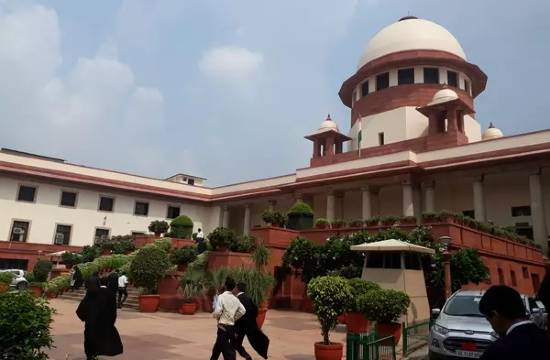LI Network
The Supreme Court , on February 10,2021 ordered to stay the Delhi High Court decision which issued directions to private, unaided and government schools like ‘Kendriya Vidyalayas’ to give devices and internet facilities to students from the Economically Weaker Section (EWS) or students from the disadvantaged sections for classes that are being conducted through online mode due to the COVID-19 lockdown.
The bench of Judges presided by Chief Justice S A Bobde consented to hear the petition forwarded by the Delhi Government contesting the High Court judgment of September 18, 2020.
Justices A S Bopanna and V Ramasubramanian, asked to Issue notice and meanwhile to put stay on operation of the impugned order of the high court.
A Two-judge bench of the High Court had said that the cost of devices and internet network facilities are not a part of educational expense and must be given free of cost to these students by the schools.
It also said that, subject to the right of the unaided private schools, they can also claim reimbursement according to the provisions Right of Children to Free and Compulsory Education Act, 2009 from the State.
While ordering a stay on the High Court’s decision, the Supreme Court additionally gave notification to NGO ‘Justice for All’, on whose appeal the High Court had conveyed the judgment and others on Delhi government’s request.
Senior Advocate Vikas Singh, representing Delhi government, told the bench that extra burden has been put on the state by the High Court decision. And he added that they are already spending a lot on the education front.
The bench, while observing that the Supreme Court had before gave out a judgement on a similar issue for a matter emerging out of Himachal Pradesh, requested that Singh place that judgment before it.
The High Court had conveyed the judgment on a plea forwarded by the NGO seeking for issuing of notices to the Centre and the Delhi Government to give free laptops, tablets or cell phones to students from financially weaker sections so they can attend the online classes during the COVID-19 lockdown.
The High Court, in its order on the fact of separating such students from others in a similar class only because of non-accessibility of a device would create inferiority feeling and that will in long run affect their hearts and minds which could never be undone. The court also added that if a school chooses to continue with classes online then it must look into the availability of devices with economically weaker section and disadvantaged group children.
Segregation of education on such basis is denial of Article 14 under the Constitution of India and also Right to Education Act, 2009 in particular.
The High Court had said that part 12(1)(c) of RTE Act requires private independent schools to give free and obligatory elementary education to 25 percentage (25%) of Economically weaker section students and that signifies “education sans financial barrier”.
“Consequently, intra-class discrimination, especially inter-se 75 per cent fee-paying students viz-a-viz 25 per cent EWS/DG students upset the level playing field and amount to discrimination as well as creates a vertical division, digital divide or digital gap or digital apartheid in addition to segregation in a classroom which is violative of RTE Act, 2009 and Articles 14, 20 and 21 of the Constitution,” the court added.
The High Court had had issued notice for coordinated constitution of a three-person panel, including the education secretary from the Centre or his nominee, Delhi government’s education secretary or his nominated candidate and a delegate of the private based schools, to assist the way for identifying and providing the devices to poor and impeded students.
It had said the board of trustees will likewise draw a standard operating procedure (SOPs) for deciding on the device and the internet network package to be provided to these students.

